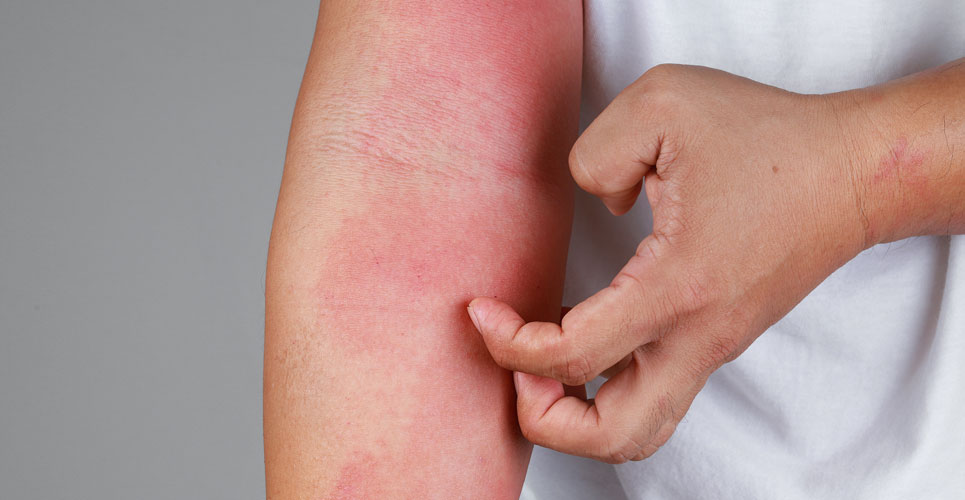Ruxolitinib is the first topical JAK inhibitor to be FDA approved for the short-term treatment of mild to moderate atopic dermatitis.
Incyte, a biopharmaceutical company, has received FDA approval for Opzelura™ (ruxolitinib) cream, the first, topical janus kinase (JAK) inhibitor, for the treatment of mild to moderate atopic dermatitis (AD). The FDA has specifically licensed Opzelura™ for the short-term and non-continuous, chronic treatment of AD in non-immunocompromised patients, 12 years of age and older whose disease is not adequately controlled with topical prescription therapies. JAK and more specifically, the janus kinase (JAK)-signal transducer and activator of transcription (STAT), or JAK-STAT pathway, plays an essential role in the dysregulation of immune responses in AD. Researchers have identified four separate JAK-STAT pathways, although ruxolitinib, is a selective inhibitor of only JAK1 and JAK2 and this leads to an effective suppression of the cytokine signalling involved in AD pathogenesis.
Clinical efficacy
The efficacy of ruxolitinib was previously shown in a 2020 study among adult patients with mild to moderate AD. Participants were randomised for 8 weeks to three different strengths of ruxolitinib; 1.5% cream, applied twice daily or once daily, a 0.5% and 0.15% cream, vehicle or triamcinolone cream 0.1% applied twice daily for 4 weeks, then vehicle for 4 weeks. Though the results showed that each of the three concentrations of ruxolitinib were more effective than placebo after 4 weeks, the greatest improvement was seen with the 1.5% strength, based on an improvement in the Eczema Area and Severity Index (71.6% vs 15.5%; ruxolitinib vs placebo, p < .0001). Interestingly, the authors of the study reported that use of ruxolitinib 1.5% both once a twice daily produced a numerically greater improvements compared with triamcinolone after 4 weeks but that the difference was not statistically significant.
Building on these initial findings, the company conducted two identical, phase 3, randomised, placebo-controlled trials comparing topical ruxolitinib 0.75% and 1.5% in patients 12 years and over with mild to moderate AD. The primary outcome was Investigator’s Global Assessment treatment success at week 8 (i.e., an investigator’s Global Assessment score of 0/1 and ≥2-grade improvement from baseline). The results which were published in May 2021, showed that significantly more patients achieved the primary outcome at week 8 both strengths of drug; 0.75% ruxolitinib (50.0% vs 15.1%, ruxolitinib vs placebo) and 1.5% ruxolitinib (53.8% and 7.6%), both with p < 0.001.
In a press release, the company have now released data on the trial’s secondary outcomes which included the proportion of participants with at least a 4-point improvement in the itch Numerical Rating Scale (NRS), and the proportion of participants with at least a 6-point improvement in the Patient-Reported Outcomes Measurement Information System (PROMIS) Short Form. The latest data release show that 20.9% and 23.8% of patients using 0.75% and 1.5% topical ruxolitinib achieved a greater than 6-point improvement in sleep scores. Similarly, 41.5% and 51.5% using the 0.75% and 1.5% creams had at least a 4-point improvement in NRS.
With Opzelura™ approved by the FDA, the company intends to seek EMA approval in the near future.
Source. Incyte Press release October 29, 2021

